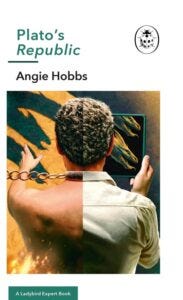Plato's Republic: A Ladybird Expert Book
Read this excerpt from the book by Prof. Angie Hobbs
This is an excerpt from Plato's Republic: A Ladybird Expert Book reproduced by kind permission of the author, Prof. Angie Hobbs, and her publisher, Penguin.
Philosophers, sophists, and alternative facts
Why is Plato so committed to the existence of knowledge? Why is he not prepared to countenance the possibility that humans might have to withhold judgement?
The answer partly lies in his distrust and dislike of the sophists, the professional teachers of skills in public speaking and debate (such as Thrasymachus). Throughout his work, Plato is particularly opposed to those who teach their students how to make the weaker argument appear the stronger, peddling tricks in argumentation for argument’s sake rather than making an honest and collaborative effort to search for the truth. He is also alarmed by the claim of one of the most famous sophists, Protagoras, that there is no such thing as objective truth and that each human simply creates his own subjective version of what is and what is not – that each ‘human is the measure’ of all things. Questioning and examining purported ‘facts’ is fine and good and what a philosopher should do, but doing away with any possibility of agreed reality is, Plato believes, both wrong and dangerous.
Keep reading with a 7-day free trial
Subscribe to Plato's Academy Centre Newsletter to keep reading this post and get 7 days of free access to the full post archives.





